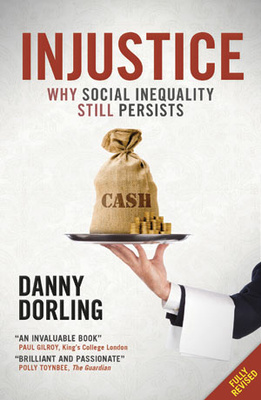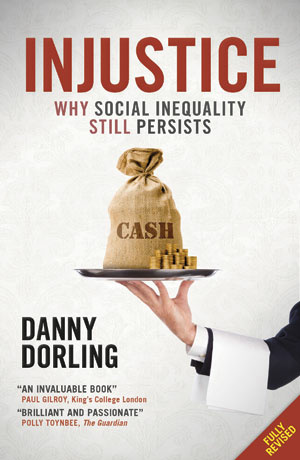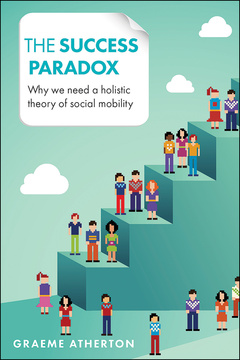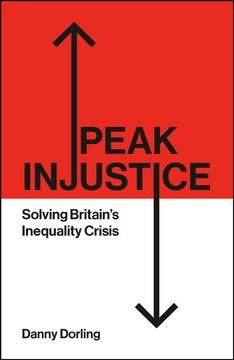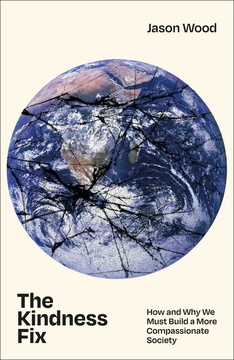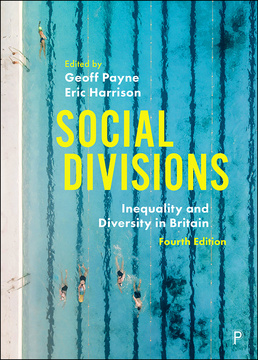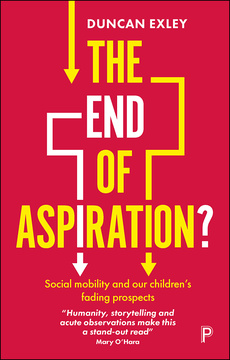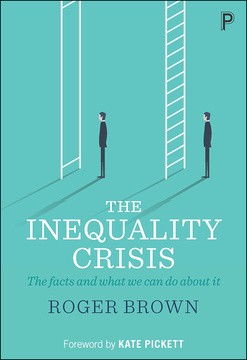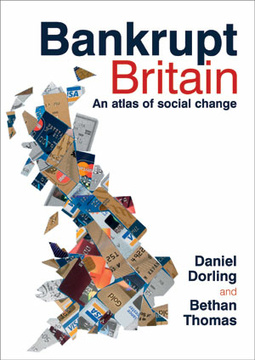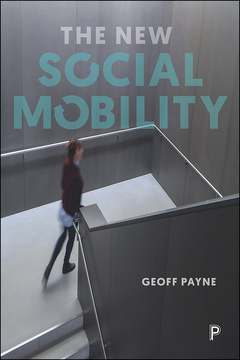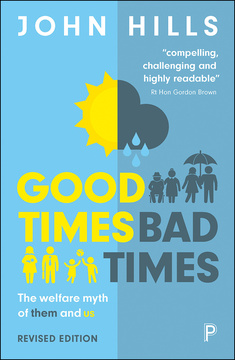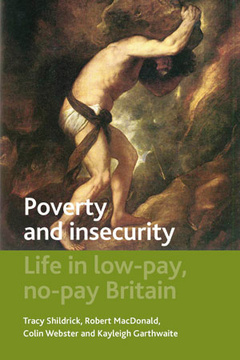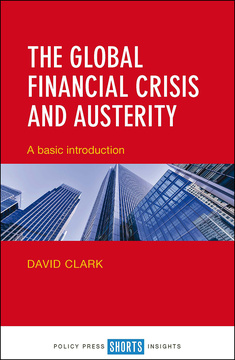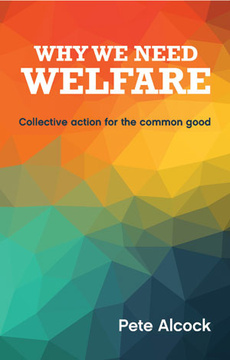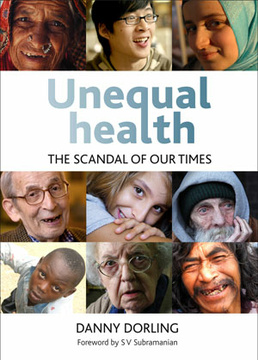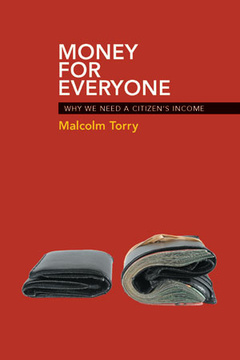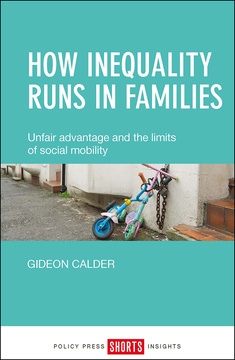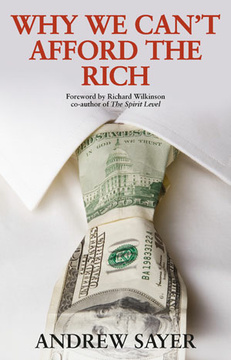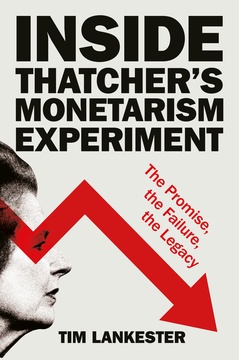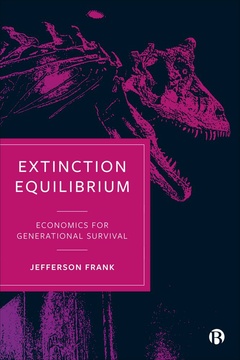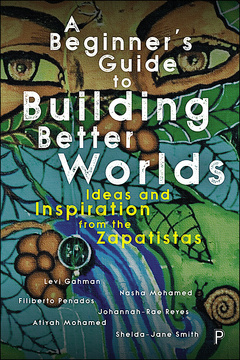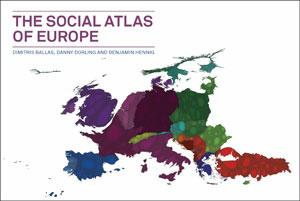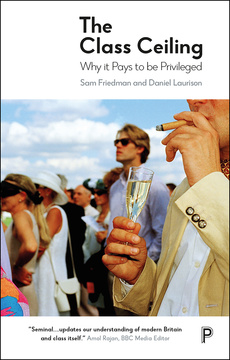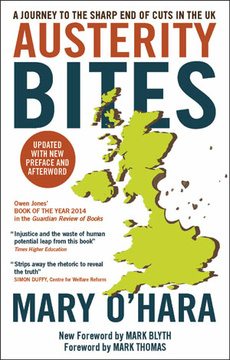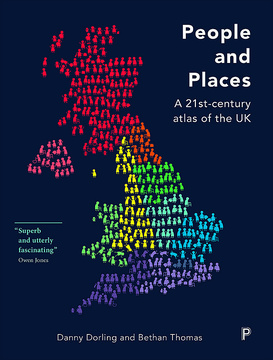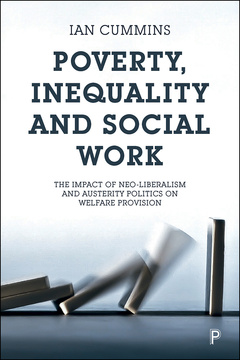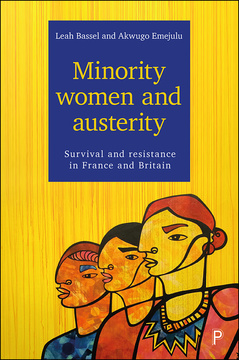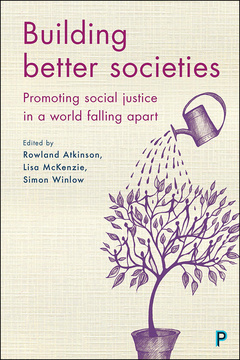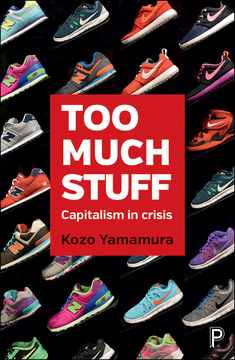Published
Jun 3, 2015Page count
484 pagesEdition
2nd EditionISBN
978-1447320753Dimensions
216 x 138 mmImprint
Policy PressPublished
Jun 3, 2015Page count
484 pagesEdition
2nd EditionISBN
978-1447320777Dimensions
Imprint
Policy PressPublished
Jun 3, 2015Page count
484 pagesEdition
2nd EditionISBN
978-1447320784Dimensions
Imprint
Policy PressIn the five years since the first edition of Injustice there have been devastating increases in poverty, hunger and destitution in the UK. Globally, the richest 1% have never held a greater share of world wealth, while the share of most of the other 99% has fallen in the last five years, with more and more people in debt, especially the young. Economic inequalities will persist and continue to grow for as long as we tolerate the injustices which underpin them.
This fully rewritten and updated edition revisits Dorling’s claim that Beveridge’s five social evils are being replaced by five new tenets of injustice: elitism is efficient; exclusion is necessary; prejudice is natural; greed is good and despair is inevitable. By showing these beliefs are unfounded, Dorling offers hope of a more equal society.
We are living in the most remarkable and dangerous times. With every year that passes it is more evident that Injustice is essential reading for anyone concerned with social justice and wants to do something about it.
"The book is accessible: clearly written and eloquently argued, with up-to-date data from the UK and US used to back up claims...a call to action, with practical steps towards eradicating inequality." Research Matters
"Dorling's text is an invaluable reference that anybody and everybody concerned with inequality, social (in)justice, and the underside to the world in which we live ought have on their bookshelf." The Marx and Philosophy Review of Books
"This updated edition of Dorling's book will remind us - if we needed reminding - that injustice has not gone away, and that in many ways it is getting worse; that there are things that we can do about it; and that we need to do those things." Citizen's Income Trust
"A rallying point for a different vision of society, one in which elitism is replaced by equality, exclusion and prejudice by acceptance, greed by selflessness, and despair by confidence. It is only in such an environment that individual fulfilment, regardless of position in the social order, and so desperately craved but so rarely realised in capitalist society, is available to all. What, then, are we waiting for?" The Oxford Left Review
"Rich insights into how prejudice, presumption and a paucity of regard for our fellow human beings reinforces poverty as well as privilege." David Cay Johnston, journalist and author, Pulitzer Prize winner
"Superb and invaluable ammunition in the fight against inequality and injustice" Owen Jones, author and Guardian columnist
"Think twice before reading this book – you may well become an activist against social injustice, inequality and the exploitation of labour. Danny Dorling gives us words that are weapons." Ken Loach, director
"Dorling’s analysis is quietly, devastatingly persuasive. Once you’ve read him you have to reassess how you live. That’s an amazing gift." Peter Florence, Director of the Hay Festival
"In this new edition of his seminal Injustice, Dorling’s unique combination of moral passion and analytical rigour made my heart sing." David Marquand, Principal of Mansfield College, Oxford University
"Excellent compendium....[from] one of the great researchers on the condition of our time." Tribune
"Powerful sentences and carefully-curated evidence frame critically-important thoughts on how we got here and how things could be different." Jamie Goodwin-White, University of California
"Dorling has given us a guide through the dark, twisted and changing forest of injustice. A must-read for anyone fighting for justice." Dr Faiza Shaheen, Head of Inequality, Save the Children
"For decades researchers have shown the damage inequality does to all society and Dorling's wonderful book extends this. With brilliance and passion Dorling analyses the mind-set of entitlement among those who hold ever tighter to money, power and life's best rewards, generation to generation." Polly Toynbee, The Guardian
"Dorling’s unsettling account makes it clear that inequity and inequality is less about ‘ideology’ and more about the self-serving interests of the powerful. His book is a passionate call for change." Dr Aniko Horvath, King's College London
"This invaluable book is more than an essential resource in the defence of our ebbing welfare state. It is a thoughtful and carefully-argued source of stimulation towards its re-invention." Paul Gilroy, Kings College London
''Danny Dorling...demolishes the five tenets that sustain and justify the persistence of social inequality'' Counterfire
"The pragmatism of the book gives readers the feeling that we can start to do something from our very everyday practices." LSE Review of Books
"The original edition of Injustice: Why Social Inequality Persists stands out as a masterpiece, not only in the production of razor-sharp arguments, but also in its collation of extensive supporting evidence. This updated edition is perhaps even more important today." Henry Parkyn-Smith, Counterfire
“Conceptually-driven and richly empirical, this book is a must-read for those seeking to dispel the naturalness of injustice while reckoning with the fallout of the past five years of surging, post-recession inequality.” Geoffrey Deverteuil, Cardiff University
“An eloquent indictment of the status quo, but so much more. By systematically dismantling the ideological props of the current economic and social order, Dorling forces us to think how things could be done differently.” Feyzi Ismail SOAS, University of London
"In this impassioned, empirical, and hopeful second edition, powerfully updated with new data, Dorling skewers ideologies that justify injustice. He reminds us that to create a better world we have to collectively imagine it is possible." Nancy Krieger, Harvard University
Danny Dorling is the Halford Mackinder Professor of Geography at the University of Oxford. He is an Academician of the Academy of the Learned Societies in the Social Sciences and Honorary President of the Society of Cartographers. With a group of colleagues he helped create the website www.worldmapper.org which shows who has most and least in the world. Find out more at www.dannydorling.org
Letter from America: commentary by Sam Pizzigati;
Foreword by Richard Wilkinson and Kate Pickett;
1. Introduction;
The beliefs that uphold injustice;
The five faces of social inequality;
A pocket full of posies;
2. Inequality: the antecedent and outcome and of injustice;
Inevitability of change: what we do now we could all have enough?;
Injustice rising out of the ashes of social evils;
So where do we go from here;
3. 'Elitism is efficient': new educational divisions;
The ‘new delinquents’: those most harmed by elitism, a seventh of all children;
IQism: the underlying rationale for the growth of elitism;
Apartheid schooling: from garaging to hot-housing;
Putting on a pedestal: superhuman myths;
The 1950s: from ignorance to arrogance;
4. 'Exclusion is necessary': excluding people from society;
Indebted: those most harmed by exclusion, a sixth of all people;
Geneticism: the theories that exacerbate social exclusion;
Segregation: of community from community;
Escapism: of the rich behind walls;
The 1960s: the turning point from inclusion to exclusion;
5. 'Prejudice is natural': a wider racism;
Indenture: labour for miserable reward, a fifth of all adults;
Darwinism: thinking that different incentives are needed;
Polarisation: of the economic performance of regions;
Inheritance: the mechanism of prejudice;
The 1970s: the new racism;
6. 'Greed is good': consumption and waste;
Not part of the programme: just getting by, a quarter of all households;
Economics: the discipline with so much to answer for;
Gulfs: between our lives and our worlds;
Celebrity: celebrated as a model of success;
The 1980s: changing the rules of trade;
7. ‘Despair is inevitable’: health and wellbeing;
Anxiety: made ill through the way we live, a third of all families;
Competition: proposing insecurity as beneficial;
Culture: the international gaps in societal wellbeing;
Bird-brained thinking: putting profit above caring;
The 1990s: birth of mass medicating;
8. Conspiracy, consensus, conclusion.
No great conspiracy;
Using the vote;
Coming to the end;
Injustice deepens;
What to do;







